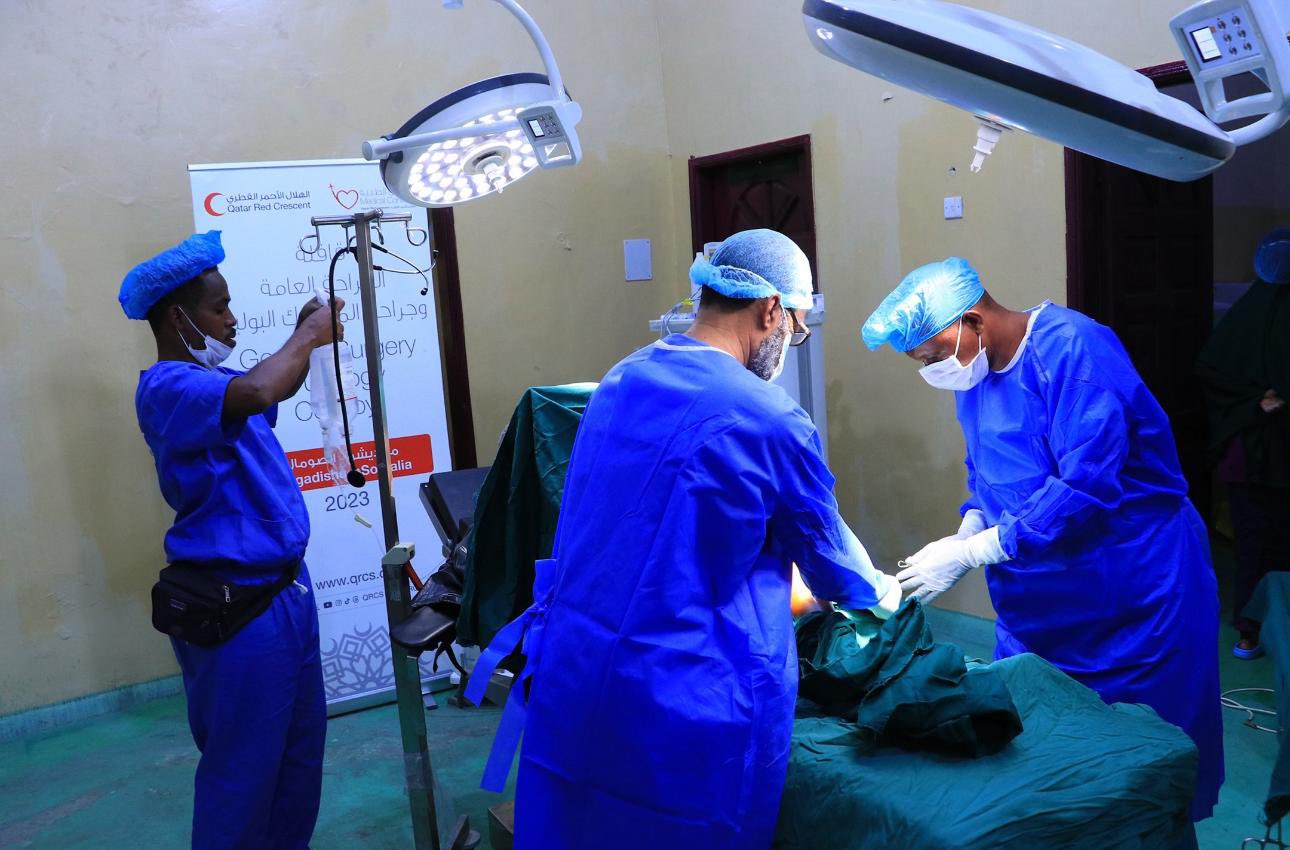Qatar Red Crescent Society’s medical convoy surpassed targets in providing critical health services in Mogadishu.
The Qatar Red Crescent Society (QRCS) has successfully concluded a medical convoy offering general surgery and urology services at the De Martini Government Hospital in Mogadishu, Somalia.
This initiative, a collaboration with Somalia’s Ministry of Health, was funded with a total of 416,302 QAR.
Spanning 17 days, the project primarily targeted the poorest and most vulnerable patients in and around Mogadishu. A special focus was placed on villages and camps housing internally displaced persons (IDPs), ensuring that those most in need received critical healthcare.
The medical team engaged in a comprehensive process that began with the screening and clinical diagnosis of 736 outpatients.
Following this, 494 individuals received laboratory testing and medical prescriptions. Notable in the project was the successful completion of 242 surgeries, divided into 221 general and 21 urology operations.
Furthermore, the hospital’s infrastructure received significant upgrades.
This included the rehabilitation of the main operating room, where improvements were made to the surgical light and air conditioning systems, alongside the restoration of walls, ceilings, and floors. The project also ensured the inspection and maintenance of the hospital’s main power supply lines.
Remarkably, the project surpassed its initial targets set in the action plan. The original goals included 600 medical examinations, 200 procedures, 400 medical prescriptions, and postoperative care for the patients. Additionally, it aimed at enhancing the skills of local medical professionals.
With its successful completion, the QRCS has underscored its commitment to providing essential healthcare services to those most in need in Somalia.
The situation of IDPs in Somalia has become increasingly dire in recent years. Since 2021, the country has seen over 3.86 million people displaced due to a combination of conflict, insecurity, drought, and floods, making Somalia one of the countries with the highest number of IDPs globally.
A significant number of IDPs in Somalia are grappling with moderate to large food consumption gaps, and many main IDP settlements are classified in Emergency (IPC Phase 4) status, indicating severe levels of acute food insecurity and malnutrition.







